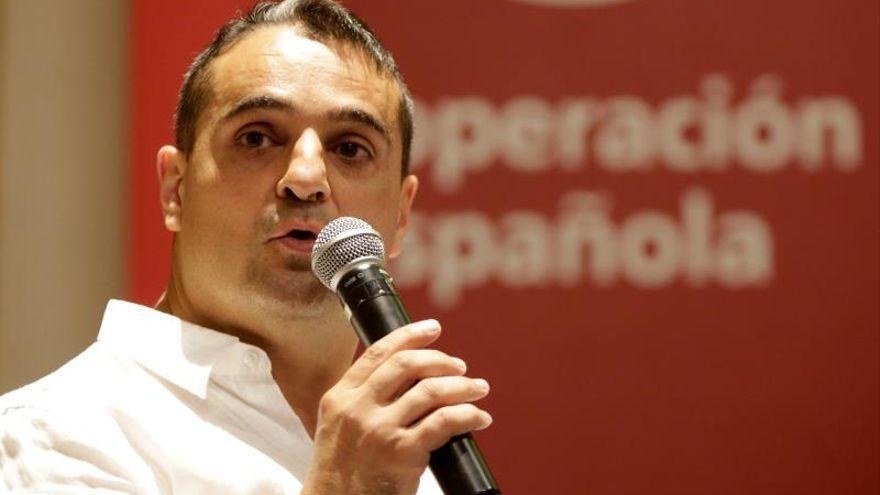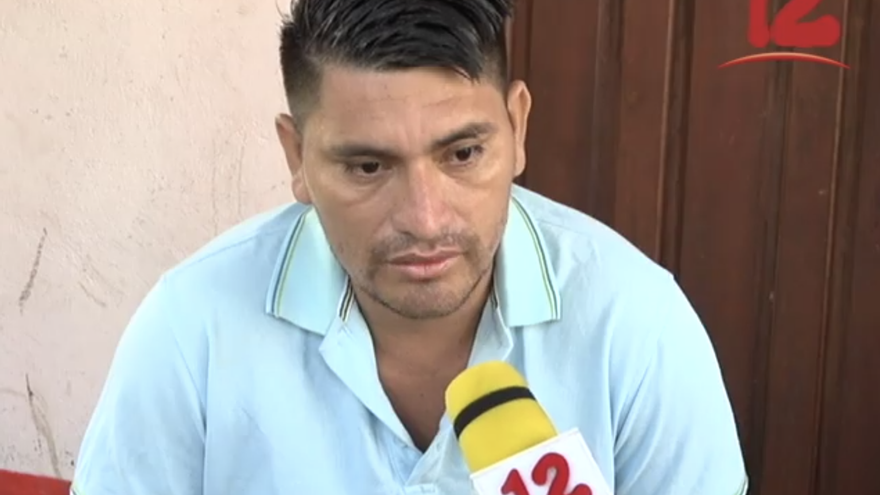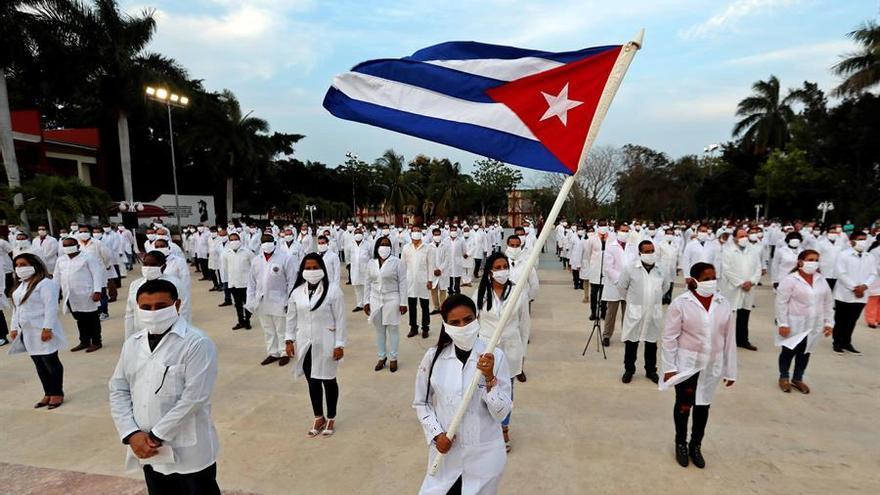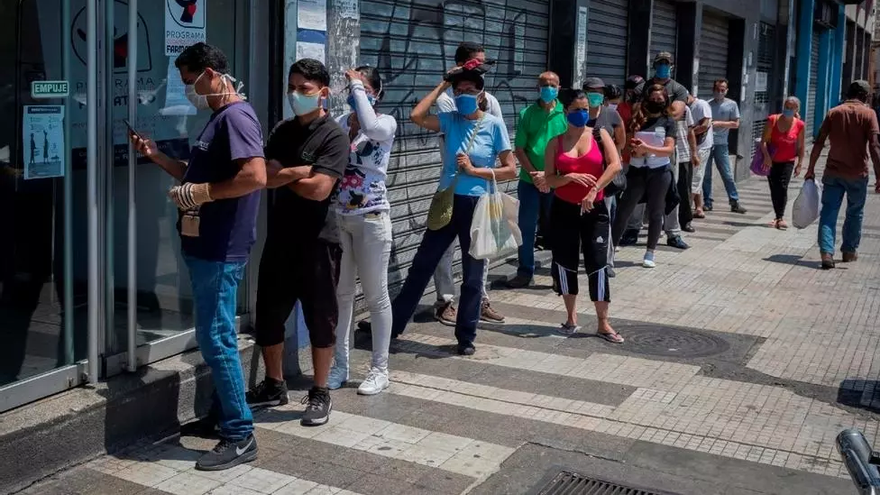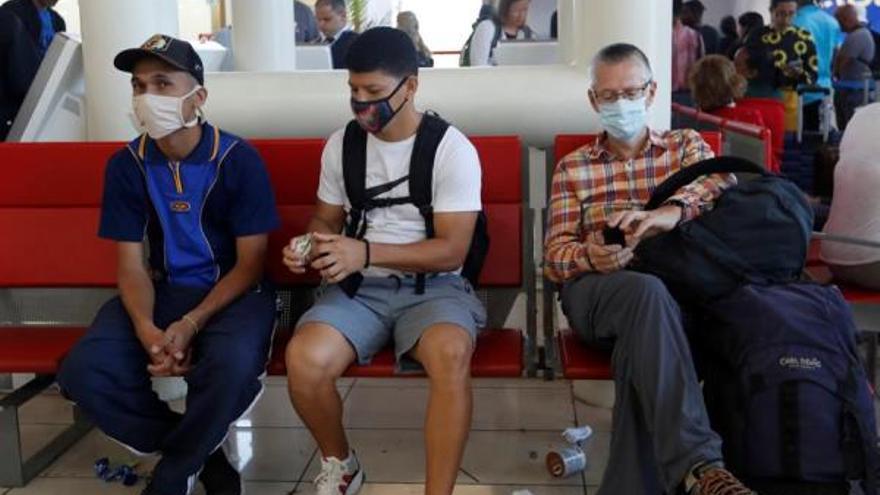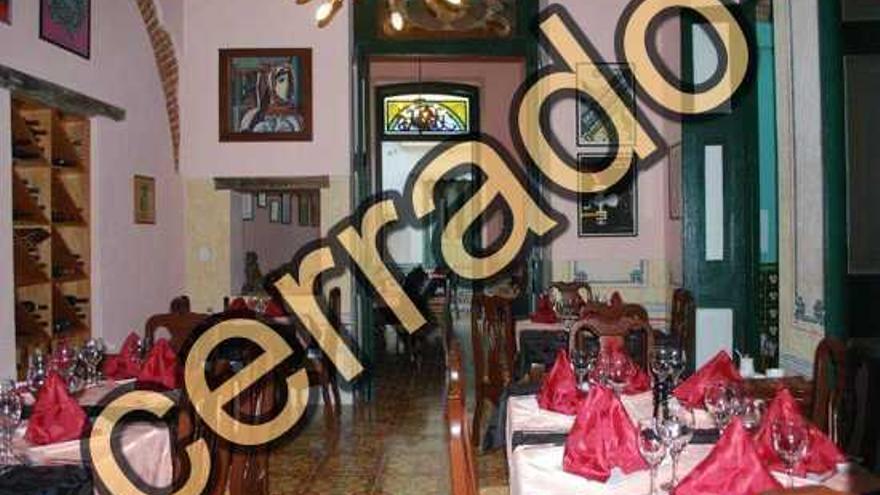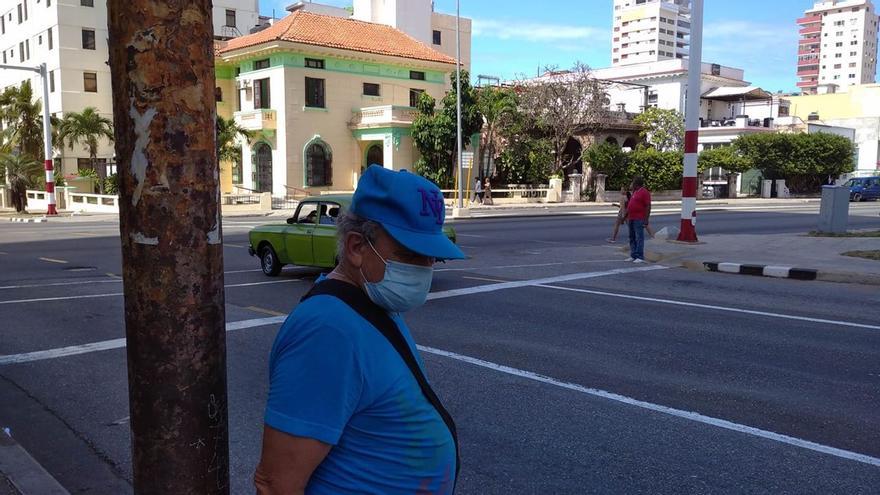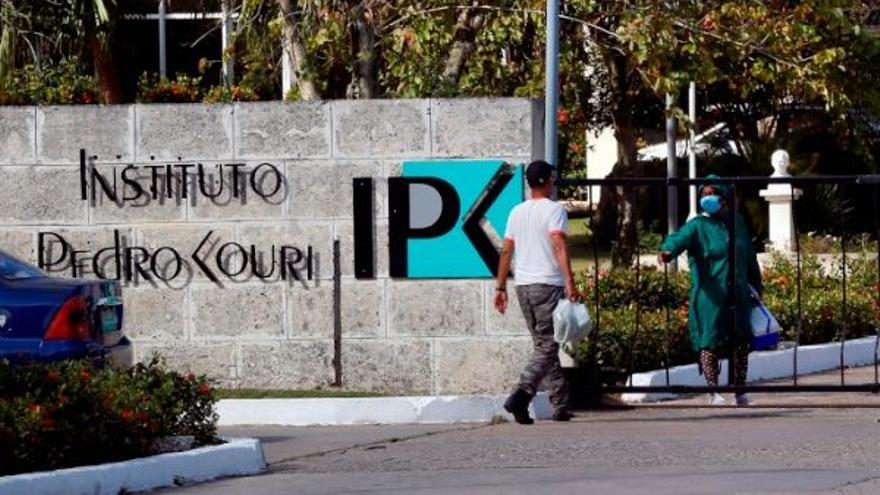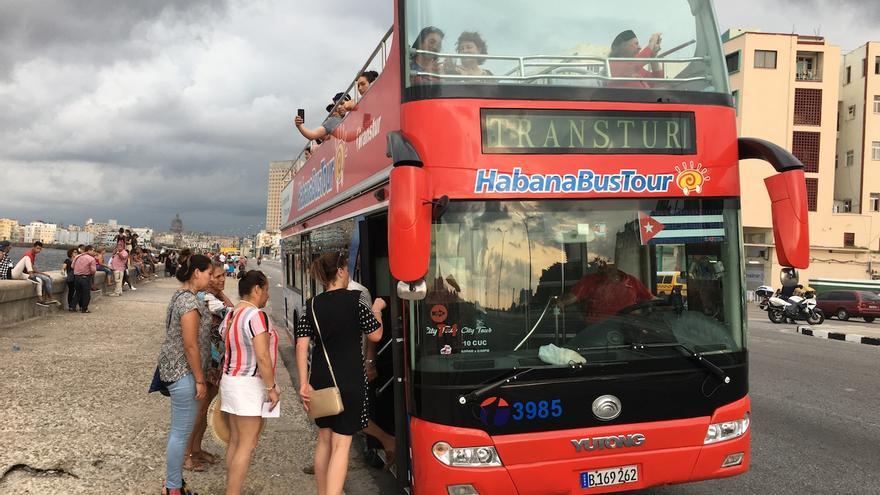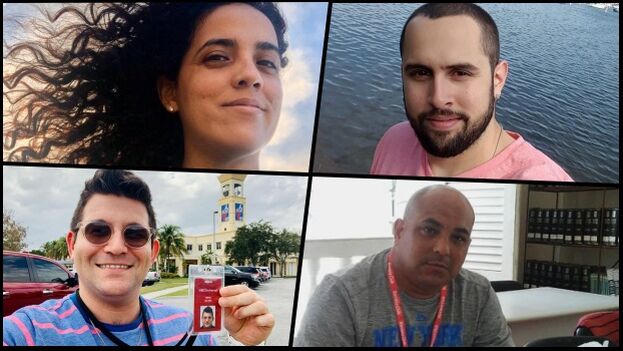
![]() 14ymedio, Havana, January 30, 2022 — Cuban independent journalism has had to reinvent itself several times. The police repression and draconian laws against freedom of expression maintained on the Island are not the only obstacles. Emigration is one of the biggest threats to a press that is also still being persecuted and demonized.
14ymedio, Havana, January 30, 2022 — Cuban independent journalism has had to reinvent itself several times. The police repression and draconian laws against freedom of expression maintained on the Island are not the only obstacles. Emigration is one of the biggest threats to a press that is also still being persecuted and demonized.
Work teams must rebuild themselves every so often because of the exodus of journalists, editors, and contributors. The bloodletting is constant and in the next months the phenomenon could accelerate due to the new Penal Code, which plans to punish, in a stricter manner, any project that receives financing from abroad, such as independent newspapers and magazines.
Many reporters do not continue practicing journalism once they are away from the Island. The numbers of exiles in the trade could even exceed one hundred in the last three years.
In 2016, the journalist José Ramírez Pantoja was the center of one of the most-talked-about cases of censorship within the official press. The reporter was fired from his job at Radio Holguín after being accused of reproducing on his blog the words of the vice president of the official newspaper Granma, Karina Marrón, who showed visionary concern over a possible social outbreak. continue reading
Out of work in the official sector, the reporter contributed to independent media, including 14ymedio, under a pseudonym to avoid major retaliations. However, State Security continued watching him closely. In 2019 he requested asylum in the United States. “They left me without work or sustenance without caring about the years that I worked as a journalist,” he said then.
Now, Pantoja is employed at the Cano Health Clinic and tells this newspaper that he would be delighted to take up once again his “full time journalistic work at a press outlet.” He believes that “from abroad there is greater freedom and security to practice a journalism in favor of a democratic Cuba without dictatorship.”
Pantoja enumerates the list of colleagues who have recently left the Island, including a well-known reporter, a “furious defender” of the Cuban regime, who now lives in Miami.
On his list there are even directors of provincial radio channels. “In sync with the social exodus, journalists are not remaining behind,” he stresses.
Mónica Baró graduated with a degree in journalism in 2012 from the University of Havana, and has contributed to sites such as Periodismo de Barrio and El Estornudo. She left Cuba in January of 2021 for Spain and from there keeps her eye and her pen on the Island. Her reports, in fact, have been key to assembling the scattered information about the detainees of July 11.
Baró has been able to keep practicing her profession on the site CiberCuba and feels “privileged,” because she knows other colleagues who haven’t been able to break into a media outlet. “It’s really difficult when you leave Cuba to find a job as a journalist to support yourself. There are a lot of stigmas regarding the capabilities of Cuban journalists.”
“Distance, of course, poses an obstacle to the practice of journalism, because nothing compares with the terrain, with living that reality. As much as you remain up to date with what’s happening, you have family in Cuba, or you are empathetic, I think that the experience is irreplaceable.”
However, “it’s necessary to ask what it is to practice journalism and what is Cuba. Is Cuba only a geographic territory or all of the Cuba that is spread all over the world? Is Cuban journalism only what is practiced on the Island or is it also what is practiced from exile?” she asks.
“The ideal for me to is practice journalism in Cuba but when I left it was practically impossible to practice the type of journalism that I was doing. What I was doing in my last months there was activism or resisting.” Baró felt that she could no longer continue reporting as before and recounts: between “becoming an activist 80 or 90% of the time or practicing journalism from a distance, I chose the challenge of distance.”
She warns that “when you leave you stop being attractive for many spaces; training programs expect you to return to Cuba to practice what you learned and that in some way cuts off your career and your training. They are basically asking you to return to a context where your safety is at risk.”
“I don’t know if journalism can be sustained much longer,” she stresses in face of the material scarcity that marks the lives of emigrants in their first years.
Entire editorial departments, internationally award-winning journalists, and even directors of media outlets are on the list of those who have settled abroad. Agencies like Hablemos Press succumbed in face of the exit of practically all its reporters, while other news sites have had to relocate their headquarters to Madrid, New York, or Mexico City.
This January, the reporter Yariel Valdés González recounted on his Facebook that he was joining the team of Telemundo 51 in Miami. “Every time that I passed on the highway near that tower I would tell myself: One day I will arrive,” he wrote in front of the channel building. “A great dream made reality since I came to this country, less than two years ago.”
Valdés was freed in March 2020 from an immigration center in Louisiana, after an Appeals Court ratified his political asylum case. While he was living on the Island, he was a contributor to the magazine Washington Blade, the United States’s oldest publication aimed at the LGBT community. Now, he smiles in a photo while holding in his hand his identification as an employee of Telemundo 51.
In other cases, emigration has served some to take up their original professions again. Víctor Ariel González was one of the founders of 14ymedio in May 2014, but previously he had graduated as a civil engineer from the José Antonio Echeverría Technological University of Havana, known as la Cujae. Several arrests and police operations led him to request asylum in the United States, where he arrived in 2015.
González got a job as an editor for the site Cubanet. His time with that outlet, headquartered in Miami and founded in 1994, kept him in contact with independent journalists on the Island. “The change was radical” in the manner of practicing journalism, he recalls. “For me journalism had been making the story” in contact with reality, something that wasn’t possible being abroad.
As an editor, it was his role to apply the editorial “scissors” to the texts that were arriving from Cuba and also to write informative notes. “I chose engineering since I was pre-university, afterwards I discovered journalism and I liked it, but when I arrived in the United States I was impressed by the highways, the buildings, and the structures. I knew that I didn’t want to dedicate myself forever to editing.”
“It was a beautiful moment because it also ended up being a personal rediscovery, like taking out of a drawer all that knowledge I had acquired during my engineering studies and realize that I still had it.” As time was passing engineering “took precedence over journalism,” he concludes.
The regime provokes this exodus by hindering journalism work with regulations, in the style of Decree 370, the dreaded Law 88 and a long list of regulations that penalize the independent exercise of journalism. State Security is dedicated to reinforcing the harassment of reporters and suggesting that they leave the country to put an end to so much pressure.
For Abraham Jiménez Enoa, leaving the Island was full of drama. For five years a travel ban weighed on him and finally at the beginning of 2022 he managed to travel the country for the first time and land in Madrid and then travel to Barcelona. In an article about his exile, which he published in Gatopardo magazine, he defines Cuba as a place where “independent journalists are treated like terrorists.”
Although the column he maintained in that publication was entitled From the Malecón and Jiménez Enoa always thought that “it would last until he left Cuba for the first time, and once he set foot in another place, this repository would have to be closed,” now he considers continue to collaborate with Gatopardo. “But no longer about my ’confinement’, I will leave that room closed and I will go to another.”
“Leaving Cuba is not the same as leaving any other country for the first time,” the journalist points out about the act of crossing national borders, perhaps in a nod to what, almost 80 years earlier, the poet Virgilio Piñera masterfully defined as “the damn circumstance of water everywhere”.
While Jiménez Enoa never ceases to be amazed by the lights he finds in the streets of Barcelona, the bookstores full of titles and the variety of yogurts in the market, thousands of kilometers away, Rafael, a reporter who writes under a pseudonym for an independent media who tries to make his way through the convulsive legal waters of the Island, prepares his escape.
“Training a reporter is something that takes a long time,” says one of the editors of the project Rafael works on and who prefers to remain anonymous. “You must learn to collect information, manage data, take care of sources and get used to the editorial line of a media outlet. When a journalist leaves, you have to start from the beginning when a new one arrives. That is, if he arrives, because each day people are more afraid.”
After almost a year narrating the streets of Havana, the young man has decided to head for Nicaragua to reach the United States. His previous profession was a cook and a cousin awaits him in Miami who drives a truck for a living. Journalism could be just a brief chapter in his life. For the team that remains, his departure leaves a hole with a difficult solution.
Translated by: Sheilagh Herrera
____________
COLLABORATE WITH OUR WORK: The 14ymedio team is committed to practicing serious journalism that reflects Cuba’s reality in all its depth. Thank you for joining us on this long journey. We invite you to continue supporting us by becoming a member of 14ymedio now. Together we can continue transforming journalism in Cuba.

